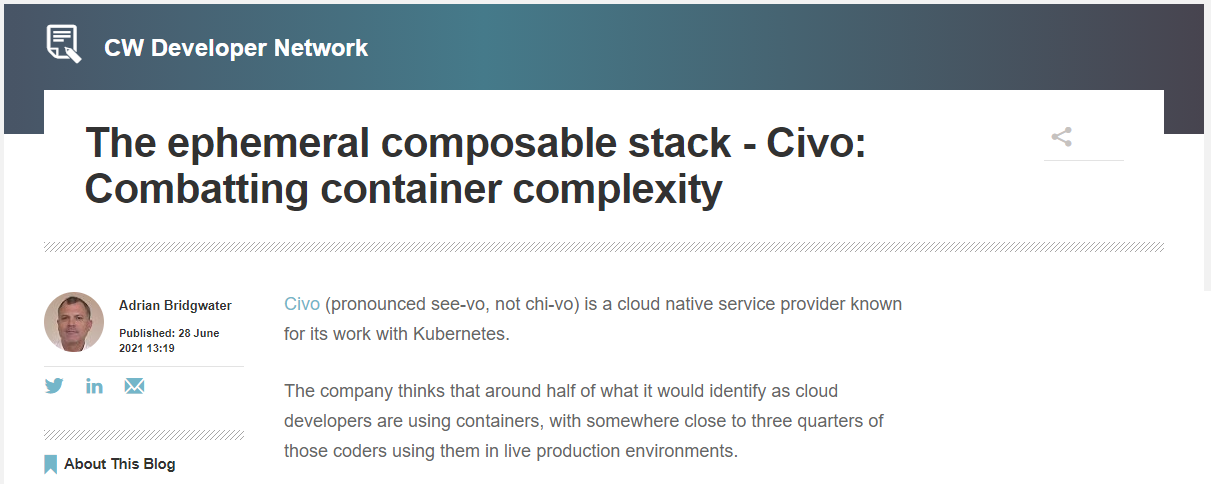
Renowned technology journalist Adrian Bridgwater looks at Civo's recent research on how container complexity is slowing the adoption of container technology, and how our Kubernetes platform is helping overcome these obstacles for businesses.
"… although half the cloud developer community is gauged to be using containers, about the same split of virtualisation-focused programmers also worry about container use case complexity."
Adrian goes on to answer the question of why containers are such a big ask for some organisations when it comes to moving their infrastructure to the cloud.
"Running many application containers at scale is tough because a more granular application composed of many parts is an inherently bigger total estate to oversee, monitor, track for application version, deliver upgrades to and map out in terms of component location."
Our CEO Mark Boost talks further on the subject...
"Our container research also revealed a number of challenges and frustrations that respondents have encountered whilst using Kubernetes."
"By far and away the top challenge of using Kubernetes is the steep learning curve (57% reported this as their top challenge) and the biggest frustration is the new terms, concepts and commands that come with adopting Kubernetes. On top of this, 62% of respondents are frustrated by the time it takes to spin up a working Kubernetes cluster."
Mark then goes onto give some insight into why Civo's managed Kubernetes is different, and how our use of K3s at our platforms core helps reduce cost, complexity, and cluster launch times.
"Due to its low resource requirements, it’s possible to run clusters using servers with just 512MB of RAM. Because it’s a compact binary, K3s clusters can spin up in a fraction of the time it takes to launch a regular Kubernetes cluster. When asked by Civo, 80% of Kubernetes users are familiar with K3s and already over half (51%) would consider it for production workloads.
Read the full article here.